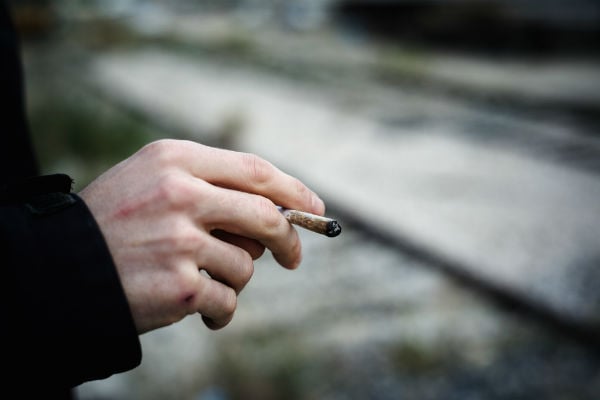“Overall, our results showed that most (88.3 percent) of the hashish samples were not suitable for consumption,” concluded the study reported in the journal Forensic Science International. “Hence, illegal street vending of hashish constitutes a public health issue.”
The forensic study of 90 samples of cannabis resin sourced from dealers on the street in different neighbourhoods across Madrid, from Majadonda to Alcobendas, was conducted by a team at Complutense University.
Manuel Pérez Moreno, a pharmacist at the Faculty of Veterinary Medicine and co-author of the study, was the one tasked with sourcing the product for testing. He explained that when buying from dealers off the street, the drug typically came in two forms: acorns and ingots.

Police seize 'acorns' of hashish. Photo: Policia Nacional
Although foreign elements were found in both, with regards to microbiological contamination, 93 percent of the acorns were contaminated with E. coli compared with 29.4 percent of the ingots.
Escherichia coli (E. coli) bacteria normally live in the intestines of healthy people and animals. Most varieties of E. coli are harmless or cause relatively short spell of diarrhoea.
But a few particularly nasty strains, such as E. coli O157:H7, can cause severe abdominal cramps, bloody diarrhoea and vomiting.
Moreover, the study found that 10 percent of samples contained aspergillus, a type of mold that is usually harmless but can trigger serious infections if those with weakened immune systems, underlying lung disease or asthma, inhale their spores.
Perez told El Pais that the contamination was due to the way in which the drug was smuggled into Spain: the resin is rolled into small balls (acorns), wrapped in cellophane and ingested.
“Once they arrive in Spain, they take laxatives to expel the acorns. And that’s what goes on sale,” said the pharmacist who added that 40 percent of the sample acorns actually smelled of faeces.
The problem comes not just with inhalation but preparing the drug in order to smoke it, he said.
“Hashish is being manipulated in the hands constantly, ” explained Perez. “The filters of the joints are hollow. Not only do you suck the smoke, you also suck particles.”
Current laws in Spain prohibit the sale and cultivation of cannabis and restricts consumption and possession to private spaces – which loosely means the drug can be consumed at one of the many private cannabis clubs that have been opened during the last decade.
Almost a third (31 percent) of the Spanish population aged 15 to 64 admits to having used cannabis at some time in their lives, according to a recent report from the Ministry of Health.
But a growing number of people are turning to the drug for therapeutic reasons, and the findings of this latest study reveals the dangers that buying off the street poses for them.
“In recent years there has been an increase in the number of people with cancer who smoke cannabis with the intention of reducing the side effects of chemotherapy. These patients have weakened immune systems, so an infection caused by the consumption of contaminated or adulterated hashish could be fatal,” the authors warn.
The report concludes that the average amount of faecal bacteria in each gram of resin is 500 times higher than the maximum limit set by the US legislation for marijuana or by the European regulation for fruit and tea.
READ ALSO: 80 per cent of European hashish smuggled in every year to Spanish town near Gibraltar



 Please whitelist us to continue reading.
Please whitelist us to continue reading.
Member comments